The big picture
Recent articles
Researchers ask colleagues to weigh in on important topics in the field.
The visual system’s lingering mystery: Connecting neural activity and perception
Figuring out how the brain uses information from visual neurons may require new tools. I asked 10 neuroscientists what experimental and conceptual methods they think we’re missing.

The visual system’s lingering mystery: Connecting neural activity and perception
Figuring out how the brain uses information from visual neurons may require new tools. I asked 10 neuroscientists what experimental and conceptual methods they think we’re missing.
One year of FlyWire: How the resource is redefining Drosophila research
We asked nine neuroscientists how they are using FlyWire data in their labs, how the connectome has transformed the field and what new tools they would like to see in the future.
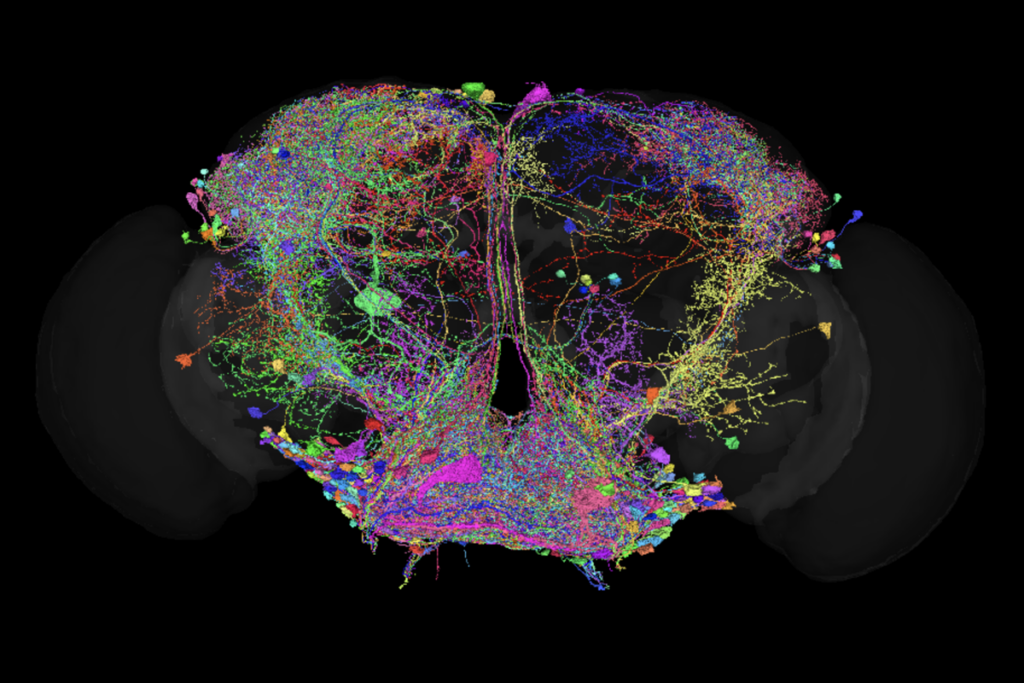
One year of FlyWire: How the resource is redefining Drosophila research
We asked nine neuroscientists how they are using FlyWire data in their labs, how the connectome has transformed the field and what new tools they would like to see in the future.
Beyond Newtonian causation in neuroscience: Embracing complex causality
The traditional mechanistic framework must give way to a richer understanding of how brains actually generate behavior over time.
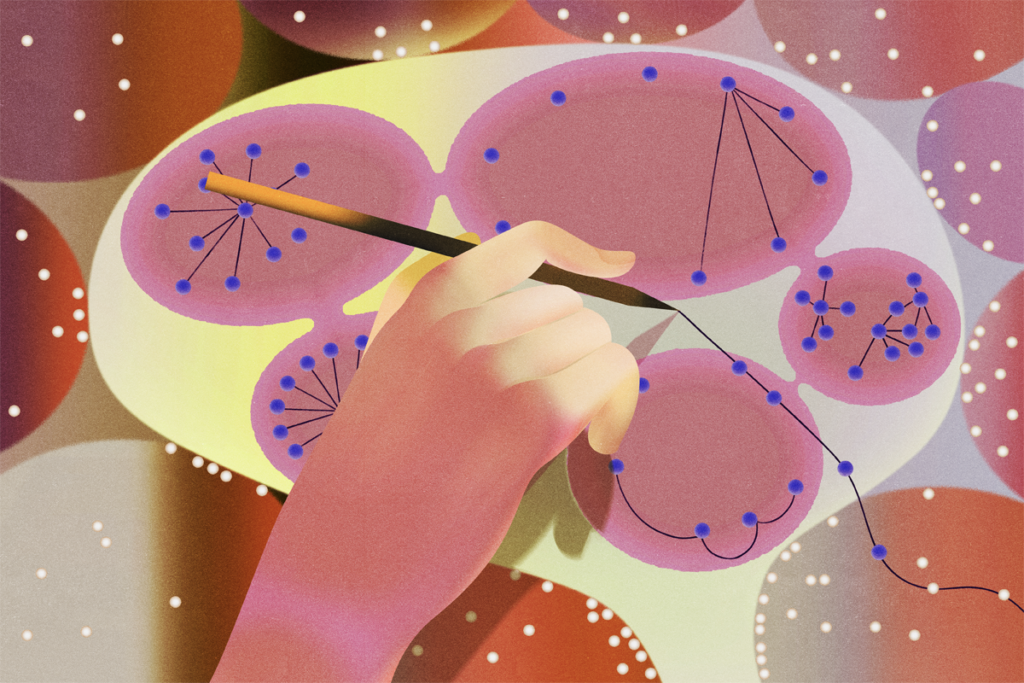
Beyond Newtonian causation in neuroscience: Embracing complex causality
The traditional mechanistic framework must give way to a richer understanding of how brains actually generate behavior over time.
Emotion research has a communication conundrum
In 2025, the words we use to describe emotions matter, but their definitions are controversial. Here, I unpack the different positions in this space and the rationales behind them—and I invite 13 experts to chime in.
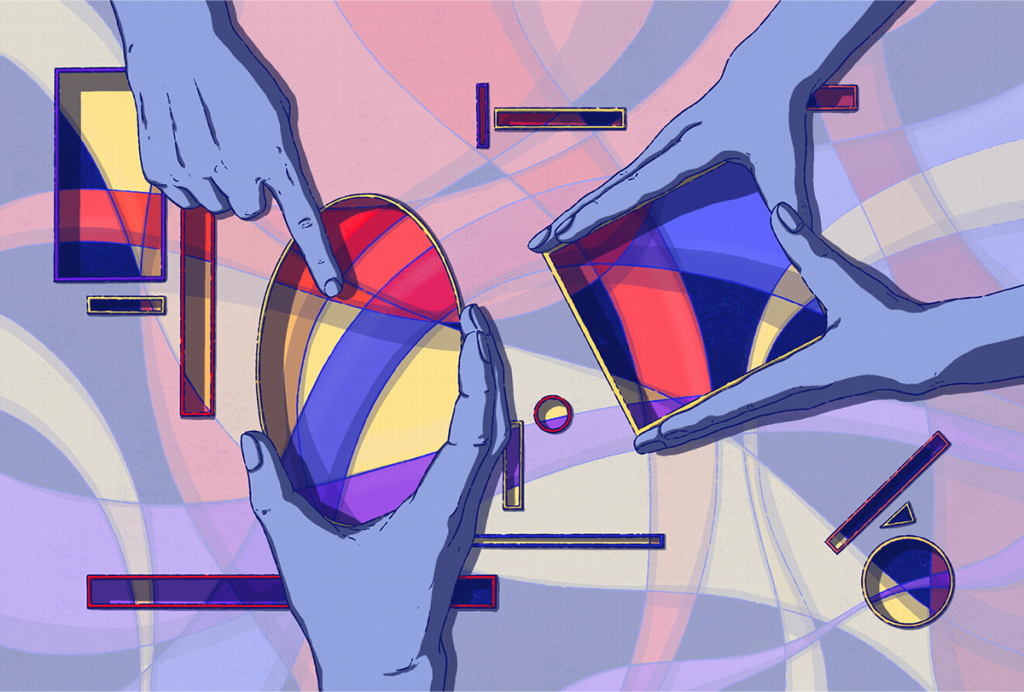
Emotion research has a communication conundrum
In 2025, the words we use to describe emotions matter, but their definitions are controversial. Here, I unpack the different positions in this space and the rationales behind them—and I invite 13 experts to chime in.
Accepting “the bitter lesson” and embracing the brain’s complexity
To gain insight into complex neural data, we must move toward a data-driven regime, training large models on vast amounts of information. We asked nine experts on computational neuroscience and neural data analysis to weigh in.
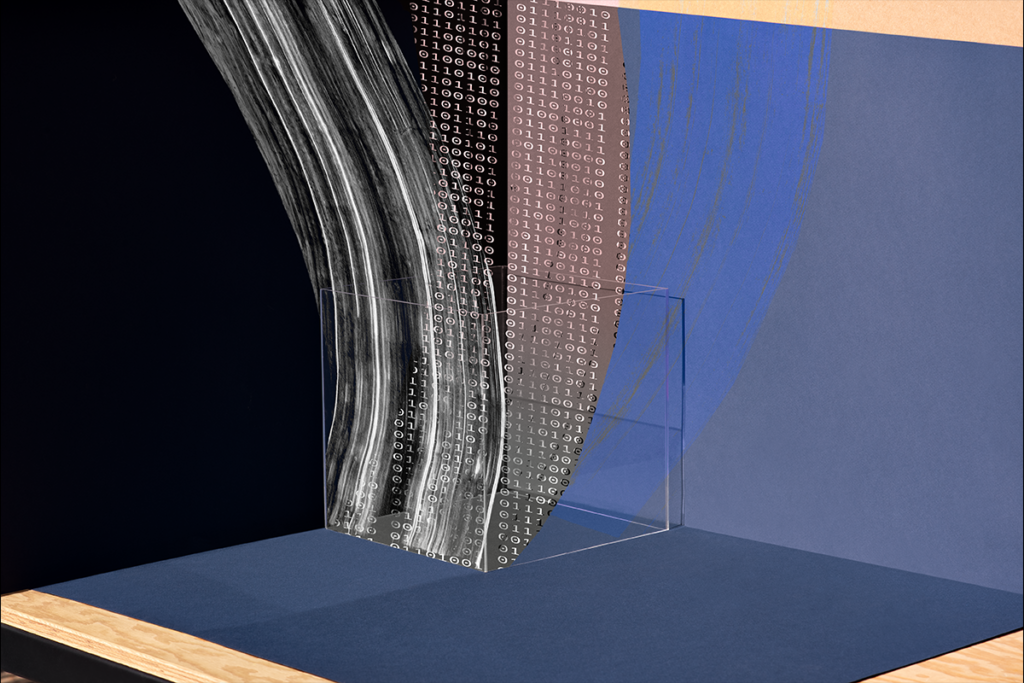
Accepting “the bitter lesson” and embracing the brain’s complexity
To gain insight into complex neural data, we must move toward a data-driven regime, training large models on vast amounts of information. We asked nine experts on computational neuroscience and neural data analysis to weigh in.
To keep or not to keep: Neurophysiology’s data dilemma
An exponential growth in data size presents neuroscientists with a significant challenge: Should we be keeping all raw data or focusing on processed datasets? I asked experimentalists and theorists for their thoughts.
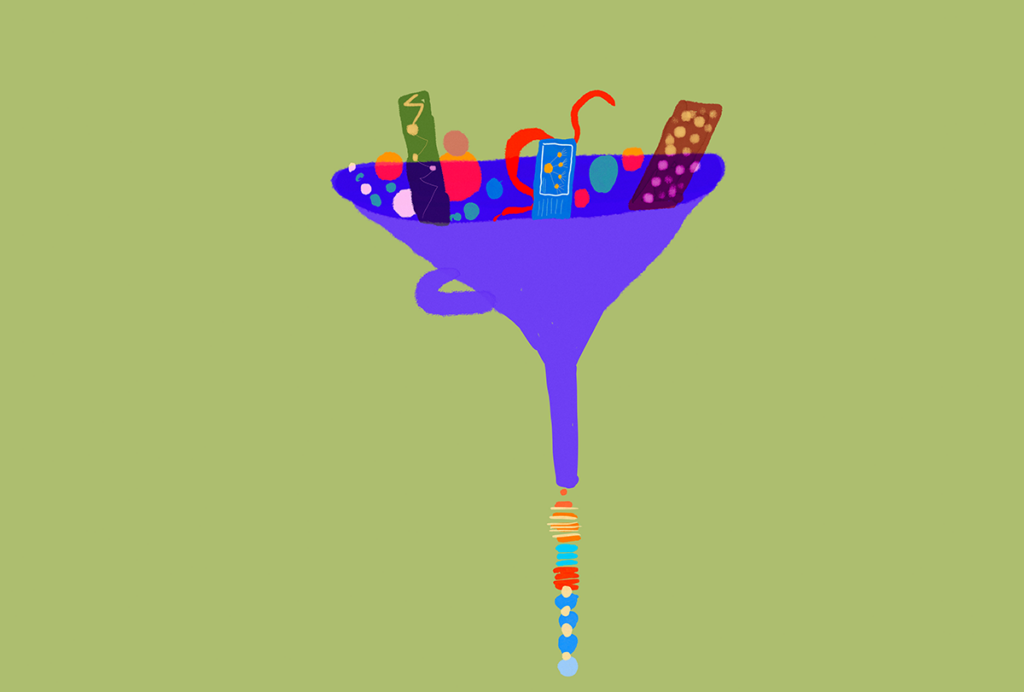
To keep or not to keep: Neurophysiology’s data dilemma
An exponential growth in data size presents neuroscientists with a significant challenge: Should we be keeping all raw data or focusing on processed datasets? I asked experimentalists and theorists for their thoughts.
What makes memories last—dynamic ensembles or static synapses?
Teasing out how different subfields conceptualize central terms might help move this long-standing debate forward. I asked eight scientists to weigh in.

What makes memories last—dynamic ensembles or static synapses?
Teasing out how different subfields conceptualize central terms might help move this long-standing debate forward. I asked eight scientists to weigh in.
What are mechanisms? Unpacking the term is key to progress in neuroscience
Mechanism is a common and powerful concept, invoked in grant calls and publication guidelines. But scientists use it in different ways, making it difficult to clarify standards in the field. We asked nine scientists to weigh in.
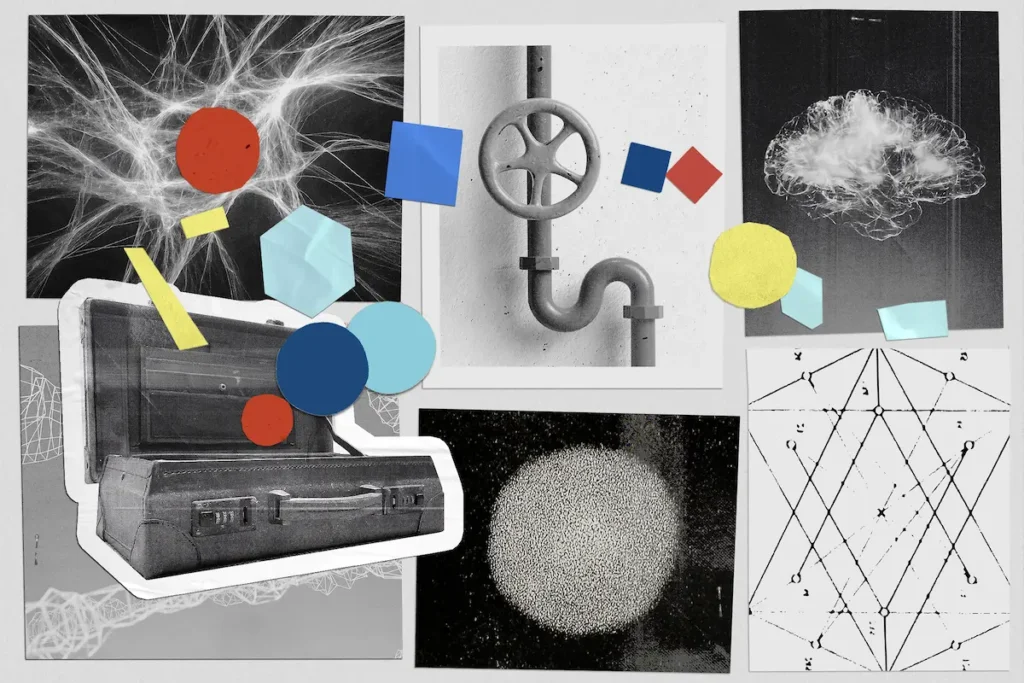
What are mechanisms? Unpacking the term is key to progress in neuroscience
Mechanism is a common and powerful concept, invoked in grant calls and publication guidelines. But scientists use it in different ways, making it difficult to clarify standards in the field. We asked nine scientists to weigh in.
What, if anything, makes mood fundamentally different from memory?
To better understand mood disorders—and to develop more effective treatments—should we target the brain, the mind, the environment or all three?
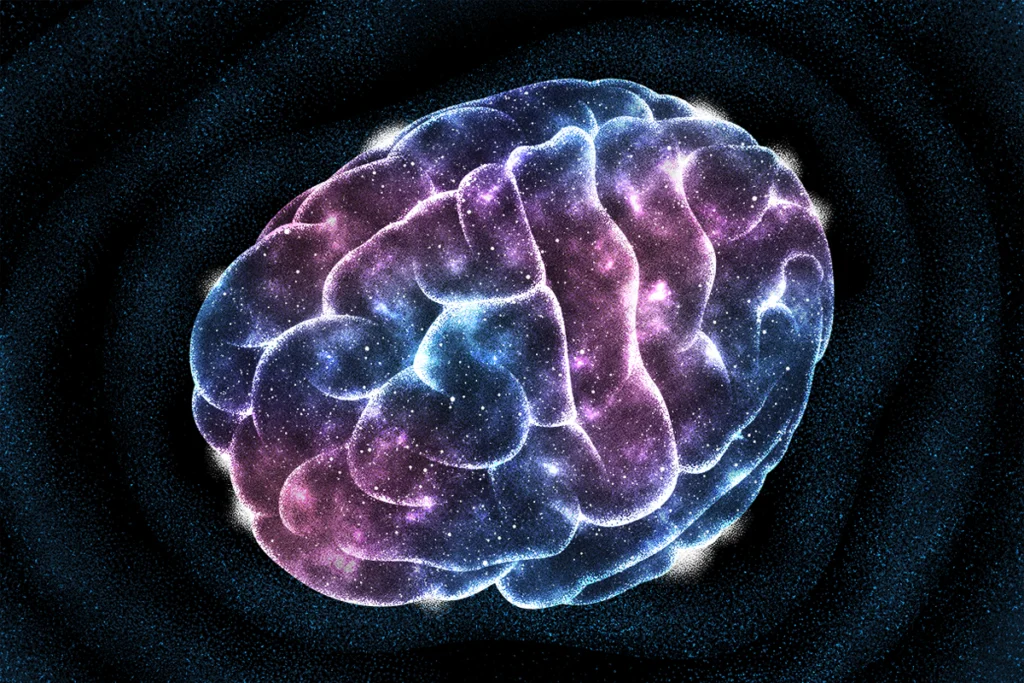
What, if anything, makes mood fundamentally different from memory?
To better understand mood disorders—and to develop more effective treatments—should we target the brain, the mind, the environment or all three?
Is the brain uncontrollable, like the weather?
The brain may be chaotic. Does that mean our efforts to control it are doomed?
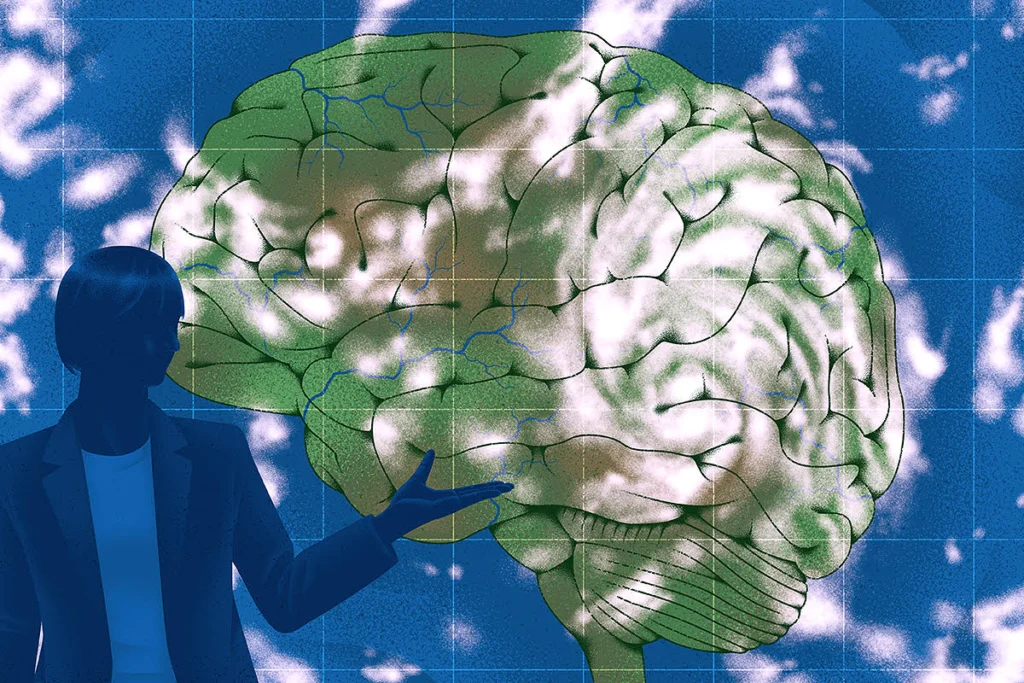
Is the brain uncontrollable, like the weather?
The brain may be chaotic. Does that mean our efforts to control it are doomed?
Explore more from The Transmitter
This paper changed my life: Ishmail Abdus-Saboor on balancing the study of pain and pleasure
A 2013 Nature paper from David Anderson’s lab revealed a group of sensory neurons involved in pleasurable touch and led Abdus-Saboor down a new research path.

This paper changed my life: Ishmail Abdus-Saboor on balancing the study of pain and pleasure
A 2013 Nature paper from David Anderson’s lab revealed a group of sensory neurons involved in pleasurable touch and led Abdus-Saboor down a new research path.
Sex bias in autism drops as age at diagnosis rises
The disparity begins to level out after age 10, raising questions about why so many autistic girls go undiagnosed earlier in childhood.

Sex bias in autism drops as age at diagnosis rises
The disparity begins to level out after age 10, raising questions about why so many autistic girls go undiagnosed earlier in childhood.
Microglia implicated in infantile amnesia
The glial cells could explain the link between maternal immune activation and autism-like behaviors in mice.

Microglia implicated in infantile amnesia
The glial cells could explain the link between maternal immune activation and autism-like behaviors in mice.